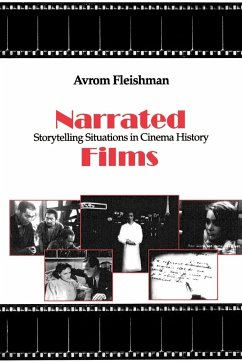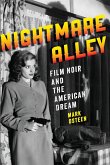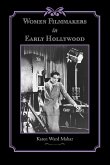In "Narrated Films," Avrom Fleishman explores the distinctive literary techniques often used by filmmakers to tell their stories. Through close viewings of ingeniously paired films, Fleishman documents five narrational practices in the cinema: voice-over ( "Orpheus" and "Sunset Boulevard"); dramatized narration, in which the film is a story that one character tells another ( "The Cabinet of Dr. Caligari" and "Hiroshima Mon Amour"); multiple narration, in which a number of characters tell the story that is the film ( "Rashomon" and "Zelig"); written narration, whether through diaries or letters ( "Letter from an Unknown Woman" and "Diary of a Country Priest"); and the cinematic version of interior monologue, which Fleishman terms "mindscreen narration" ( "Brief Encounter" and "Daybreak").
Hinweis: Dieser Artikel kann nur an eine deutsche Lieferadresse ausgeliefert werden.
Hinweis: Dieser Artikel kann nur an eine deutsche Lieferadresse ausgeliefert werden.








